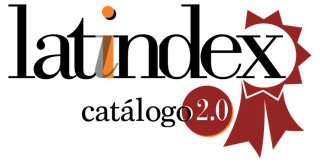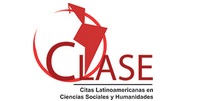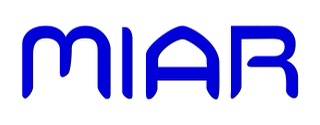Hacia un paradigma cíborg de la escritura académica en la era de Inteligencia Artificial
DOI:
https://doi.org/10.32870/dse.v0i34.1796Downloads
Referências
Baši?, Ž.; A. Banovac; I. Kruži?; I. Jerkovi? (2023). ChatGPT-3.5 as writing assistance in students’ essays. Humanities and Social Sciences Communications, 10(1). https://doi.org/10.1057/s41599-023-02269-7
Benavides-Lara, M.; V. Rendón-Cazales; N. Escalante-Rivas; A. Martínez-Hernández; M. Sánchez-Mendiola (2025). Presencia y uso de la inteligencia artificial generativa en la Universidad Nacional Autónoma de México. Revista Digital Universitaria, 26(1), 1-16. https://doi.org/10.22201/ceide.16076079e.2025.26.1.10
Biju, N.; N. Abdelrasheed; K. Bakiyeva; K. Prasad; B. Jember (2024). Which one? AI-assisted language assessment or paper format: an exploration of the impacts on foreign language anxiety, learning attitudes, motivation, and writing performance. Language Testing in Asia, 14(1). https://doi.org/10.1186/s40468-024-00322-z
Consuegra-Fernández, M.; J. Sanz-Aznar; J. Burguera-Serra; J. Caballero (2024). ChatGPT: The Dilemma of the Authorship of Graded Assignments in Higher-Education. Revista de Investigacion Educativa, 42(2). https://doi.org/10.6018/rie.565391
Crawford, K. (2023). Atlas de la IA. Ned Ediciones.
Dwivedi, Y.; N. Kshetri; L. Hughes; E. Slade; A. Jeyaraj; A. Kar; A. Baabdullah; A. Koohang; V. Raghavan; M. Ahuja; H. Albanna; M. Albashrawi; A. Al-Busaidi; J. Balakrishnan; Y. Barlette; S. Basu; I. Bose; L. Brooks; D. Buhalis; … R. Wright (2023). “So what if ChatGPT wrote it?” Multidisciplinary perspectives on opportunities, challenges and implications of generative conversational AI for research, practice and policy. International Journal of Information Management, 71. https://doi.org/10.1016/j.ijinfomgt.2023.102642
Dzieza, J. (2022). The Great Fiction of AI. The strange world of high-speed semi-automated genre fiction. The Verge. https://www.theverge.com/c/23194235/ai-fiction-writing-amazon-kindle-sudowrite-jasper
Gustilo, L.; E. Ong; M. Lapinid (2024). Algorithmically-driven writing and academic integrity: exploring educators’ practices, perceptions, and policies in AI era. International Journal for Educational Integrity, 20(1). https://doi.org/10.1007/s40979-024-00153-8
Helm, G.; F. Hesse (2024). Usage and beliefs of student teachers towards artificial intelligence in writing. Research in Subject-Matter Teaching and Learning (RISTAL), 7(1), 1-18. https://doi.org/10.2478/ristal-2024-0001
Herbold, S.; A. Hautli-Janisz; U. Heuer; Z. Kikteva; A. Trautsch (2023). A large-scale comparison of human-written versus ChatGPT-generated essays. Scientific Reports, 13(1). https://doi.org/10.1038/s41598-023-45644-9
Hsiao, Y.; N. Klijn; M. Chiu (2023). Developing a framework to re-design writing assignment assessment for the era of Large Language Models. Learning: Research and Practice, 9(2), 148-158. https://doi.org/10.1080/23735082.2023.2257234
Hutson, M. (2022). Could AI help you to write your next paper. Nature, 611, 192-193. https://www.nature.com/articles/d41586-022-03479-w
Kaliterna, M.; M. Žuljevi?; L. Ursi?; J. Krka; D. Duplan?i? (2024). Testing the capacity of Bard and ChatGPT for writing essays on ethical dilemmas: A cross-sectional study. Scientific Reports, 14(1), 26046. https://doi.org/10.1038/s41598-024-77576-3
Kosmyna, N.; E. Hauptmann; Y. Yuan; J. Situ; X.-H. Liao; A. Beresnitzky; I. Braunstein; P. Maes (2025). Your Brain on ChatGPT: Accumulation of Cognitive Debt when Using an AI Assistant for Essay Writing Task. Arxiv.Org. https://doi.org/https://doi.org/10.48550/arXiv.2506.08872
Lee, J. (2023). Can an artificial intelligence chatbot be the author of a scholarly article? Science Editing, 20(6). https://doi.org/10.6087/kcse.292
Luther, T., Kimmerle, J., & Cress, U. (2024). Teaming Up with an AI: Exploring Human–AI Collaboration in a Writing Scenario with ChatGPT. AI, 5(3), 1357-1376. https://doi.org/10.3390/ai5030065
Melliti, M. (2024). AI in MA Thesis Writing: The Use of Lexical Patterns to Study the ChatGPT Influence. International Journal of TESOL Studies, 6(3), 58-76. https://doi.org/10.58304/ijts.20240305
Miller, C. (2022). Chip War: The Fight for the World’s Most Critical Technology. Simon & Schuster.
Nikolic, S.; C. Sandison; R. Haque; S. Daniel; S. Grundy; M. Belkina; S. Lyden; G. Hassan; P. Neal (2024). ChatGPT, Copilot, Gemini, SciSpace and Wolfram versus higher education assessments: an updated multi-institutional study of the academic integrity impacts of Generative Artificial Intelligence (GenAI) on assessment, teaching and learning in engineering. Australasian Journal of Engineering Education. https://doi.org/10.1080/22054952.2024.2372154
Niloy, A.; S. Akter; N. Sultana; J. Sultana; S. Rahman (2024). Is Chatgpt a menace for creative writing ability? An experiment. Journal of Computer Assisted Learning, 40(2), 919-930. https://doi.org/10.1111/jcal.12929
Ou, A.; C. Stöhr; H. Malmström (2024). Academic communication with AI-powered language tools in higher education: From a post-humanist perspective. System, 121. https://doi.org/10.1016/j.system.2024.103225
Parker, J.; V. Richard; A. Acabá; S. Escoffier; S. Flaherty; S. Jablonka; K. Becker (2024). Negotiating Meaning with Machines: AI’s Role in Doctoral Writing Pedagogy. International Journal of Artificial Intelligence in Education. https://doi.org/10.1007/s40593-024-00425-x
Punar, N.; G. Yang?n (2024). Cultivating writing skills: the role of ChatGPT as a learning assistant—a case study. Smart Learning Environments, 11(1). https://doi.org/10.1186/s40561-024-00296-8
Santiago-Ruiz, E. (2024). The incorporation of generative artificial intelligence in the research and writing practices of Mexican scientists. Yachana. Revista Científica, 13(2), 83-97. https://doi.org/10.62325/10.62325/yachana.v13.n2.2024.924
Santiago-Ruiz, E.; A. Páramo (2025). Inteligencia artificial en educación superior: integridad académica y nuevas formas de escritura. Revista de Investigación Educativa de la REDIECH, 16(e2225), 1-21. https://doi.org/10.33010/ie_rie_rediech.v16i0.2225
Sharples, M. (2022). Automated Essay Writing: An AIED Opinion. International Journal of Artificial Intelligence in Education, 32(4), 1119-1126. https://doi.org/10.1007/s40593-022-00300-7
Stokel-Walker, C. (2023). ChatGPT listed as author on research papers: many scientists disapprove. Nature, 613(7945). https://doi.org/10.1038/d41586-023-00107-z
Tarchi, C.; A. Zappoli; L. Casado; E. Brante (2025). The Use of ChatGPT in Source-Based Writing Tasks. International Journal of Artificial Intelligence in Education, 35(2), 858-878. https://doi.org/10.1007/s40593-024-00413-1
Tegmark, M. (2017). Vida 3.0 Ser humano en la era de la inteligencia artificial. Taurus.
Urban, M.; C. Brom; J. Lukavský; F. D?cht?renko; V. Hein; F. Svacha; P. Kmoní?ková; K. Urban (2025). “ChatGPT can make mistakes. Check important info.” Epistemic beliefs and metacognitive accuracy in students’ integration of ChatGPT content into academic writing. British Journal of Educational Technology. https://doi.org/10.1111/bjet.13591
Waltzer, T.; C. Pilegard; G. Heyman (2024). Can you spot the bot? Identifying AI-generated writing in college essays. International Journal for Educational Integrity, 20(1). https://doi.org/10.1007/s40979-024-00158-3
Wang, C. (2024). Exploring Students’ Generative AI-Assisted Writing Processes: Perceptions and Experiences from Native and Nonnative English Speakers. Technology, Knowledge and Learning. https://doi.org/10.1007/s10758-024-09744-3
Weber-Wulff, D.; A. Anohina-Naumeca; S. Bjelobaba; T. Foltýnek; J. Guerrero-Dib; O. Popoola; P. Šigut; L. Waddington (2023). Testing of detection tools for AI-generated text. International Journal for Educational Integrity, 19(1). https://doi.org/10.1007/s40979-023-00146-z
Wiboolyasarin, W.; K. Wiboolyasarin; K. Suwanwihok; N. Jinowat; R. Muenjanchoey (2024). Synergizing collaborative writing and AI feedback: An investigation into enhancing L2 writing proficiency in wiki-based environments. Computers and Education: Artificial Intelligence, 6. https://doi.org/10.1016/j.caeai.2024.100228
World Economic Forum (2023). Jobs of Tomorrow: Large Language Models and Jobs. https://www.weforum.org/publications/jobs-of-tomorrow-large-language-models-and-jobs/
Yan, D.; S. Zhang (2024). L2 writer engagement with automated written corrective feedback provided by ChatGPT: A mixed-method multiple case study. Humanities and Social Sciences Communications, 11(1). https://doi.org/10.1057/s41599-024-03543-y
Zhao, X.; A. Cox; L. Cai (2024). ChatGPT and the digitisation of writing. Humanities and Social Sciences Communications, 11(1). https://doi.org/10.1057/s41599-024-02904-x
Downloads
Publicado
Edição
Seção
Licença
Copyright (c) 2025 Universidad de Guadalajara

Este trabalho está licenciado sob uma licença Creative Commons Attribution-NonCommercial 4.0 International License.
Esta obra está bajo una licencia internacional Creative Commons Atribución-NoComercial 4.0.
Una vez que los manuscritos son aceptados por los evaluadores para ser publicados, los autores deberán de suscribir una carta de cesión de derechos en favor de la Universidad de Guadalajara para la edición, publicación y difusión de su obra. Ya que sea notificada la publicación de su manuscrito, el editor de la revista le enviará un correo electrónico con el formato de la carta de cesión de derechos.















